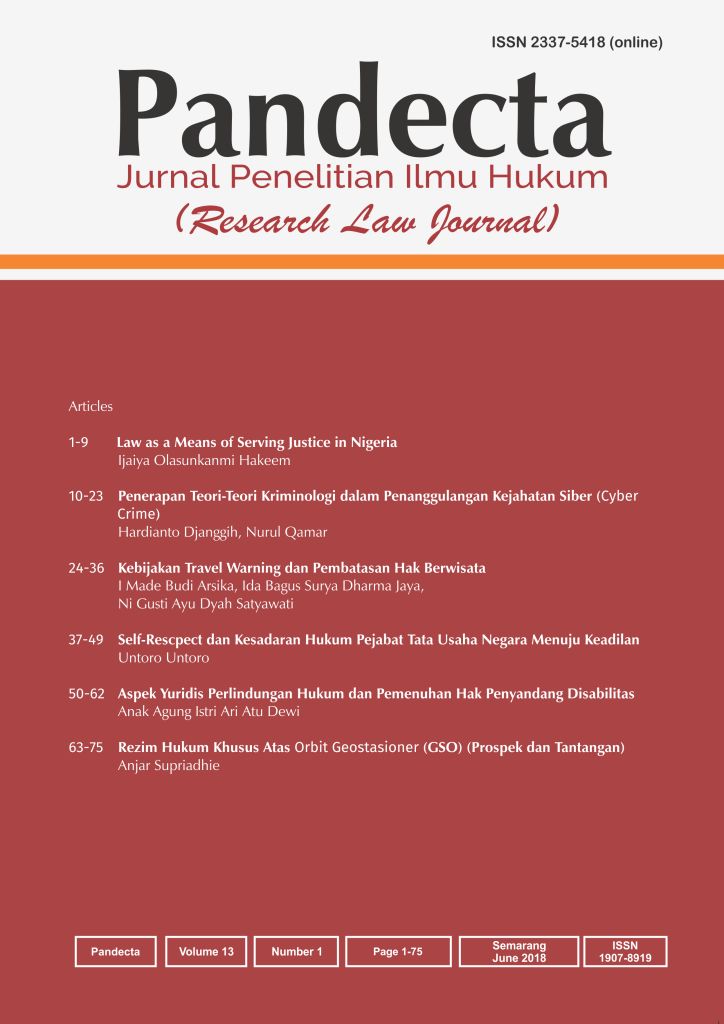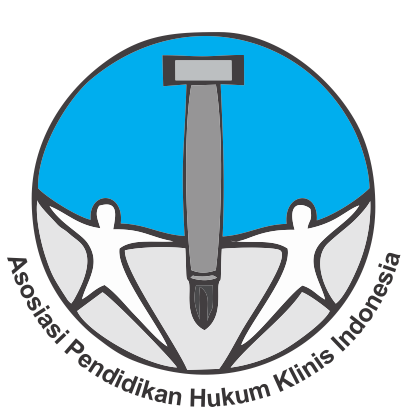Access to Justice Based on Expert Testimony in Tax Crimes: An Integrated Criminal Justice System Perspective in Indonesia
(1) Program Doktor Ilmu Hukum Universitas Diponegoro
Abstract
Several cases of criminal acts in the field of taxation show differences in calculating losses in state revenue between prosecution and judge's decisions; several decisions acquit or punish a defendant. There is still ambiguity in treatment between the application of criminal tax sanctions or administrative tax sanctions, so it is necessary to and urges to conduct a study of access to justice in terms of setting expert statements in tax crimes based on the principle of equality before the law and the principle of checks and balances in building a solid integrated criminal justice system. Two main conclusions were drawn based on case studies and literature reviews using the normative juridical method, the access to justice, and the progressive legal models. First, experts in calculating losses on state income and experts on tax regulations in taxation are still dominated by internal employees of the Directorate General of Taxes (DGT), which of course will reduce the value of the independence of the experts' statements because they cannot be separated from conflicts of interest with their institutions. Second, experts who provide information in a tax crime must be competent, independent, capable, and objective in providing information and opinions so that it needs to be made in the form of a cross-institutional ad hoc team with accountability in the form of a report on the results of the examination. It is necessary and urgent to provide legal certainty in access to justice for expert testimony to update the rules regarding procedures for expert testimony in tax crimes.
Keywords
Full Text:
PDFReferences
Amirudin, & Asikin, Z. (2006). Pengantar Metode Penelitian Hukum. Jakarta: PT Raja Grafindo Persada.
Bedner, A., & Vel, J. (2012). Sebuah Kerangka Analisis untuk Penelitian Empiris dalam Bidang Akses Terhadap Keadilan. In S. Irianto, et al. (Eds.), Kajian Sosio-Legal (pp. 81-114). Denpasar: Pustaka Larasan.
Bolifaar, A. H., & Sinaga. H. D. P. (2020). Managing Evidence Of Tax Crime In Indonesia: An Artificial Intelligence Approach In Integrated Criminal Justice System. Ayer Journal, 27(1), 143-158.
Bugeja, M. (2005). The ‘Independence’ of Expert Opinions in Corporate Takeovers: Agreeing With Directors’ Recommendations. Journal of Business & Accounting, 32(9) & (10), 1861-1885.
Constitutional Court Decision Number 65/PUU-VIII/2010.
Dananjaya, N. S. (2014). Sistem Peradilan Pidana Terpadu (Integrated Criminal Justice System) di Kaji dari Perspektif Sub Sistem Kepolisian. Vyavahara Duta, 9(1), 87-94.
Fuady, M. (2009). Teori Negara Hukum Modern (Rechstaat). Bandung: PT. Refika Aditama.
Hasanah, S. (2019). Ancaman Pidana Bagi Orang Yang Menolak Panggilan Sebagai Saksi. Retrieved from https://www.hukumonline.com/klinik/detail/ulasan/lt50cc981bed84f/tidak-mau-jadi-saksi/ (accessed Agustus 4, 2021).
Indonesia, Supreme Court cassation decision Number 2583 K/PID.SUS/2016.
Indonesia, Palembang District Court Number 394/Pid.sus/2015/PN.Plg.
Law Number 48 of 2009 concerning Amendments to Law Number 16 of 1970 concerning Basic Provisions of Judicial Power.
Law Number 8 of 1981 concerning the Criminal Procedure Code.
Law Number 16 of 2009 concerning General Provisions and Tax Procedures.
Law Number 12 of 1994 concerning Land and Building Taxes.
Kamus Besar Bahasa Indonesia (KBBI) Daring. (2021), “ambiguitas”. Retrieved from https://kbbi.kemdikbud.go.id/entri/ambiguitas (accessed Agustus 3, 2021).
Lux, C. (2002). Conflicts of Interest in Germany: A Legal Perspective. Science and Engineering Ethics, 8(3), 327-336.
Murphy, L., & Nagel, T. (2002). The Myth of Ownership: Taxes and Justice. Oxford: Oxford University Press, Inc.
Nussbaum, M. (1999). Women and Equality: The Capabilities Approach. International Labour Review, 138(3), 227-245.
Pramugar, R. N., & Sinaga, R. Y. (2021). E-Government in Optimizing Non-Tax Revenue of the Mining Sector in Indonesia. Journal of Accounting and Finance, 5(1), 36-44. https://doi.org/10.25124/jaf.v5i1.3743.
Rahardjo, S. (2009). Hukum Progresif: Sebuah Sintesa Hukum Indonesia. Yogyakarta: Genta Publishing.
Regulation of the Minister of Finance Number 86/PMK.03/2013 concerning Procedures for Granting Written Permits to Officials and Experts to Provide Information and Show Written Evidence from or concerning Taxpayers.
Samekto, F. X. A. (2005). Studi Hukum Kritis: Kritik Terhadap Hukum Modern. Bndung: Penerbit PT. Citra Aditya Bakti.
Sidharta, B. A. (2009). Penelitian Hukum Normatif: Analisis Penelitian Filosofikal dan Dogmatikal. In S. Irianto & Sidharta (Eds.), Metode Penelitian Hukum: Konstelasi dan Refleksi (pp. 142-149). Jakarta: Yayasan Obor Indonesia.
Siegel, L. J. (2011). Essentials of Criminal Justice. Belmont: Wadsworth-Cengage Learning.
Sinaga, B. R. P., Sinaga, E. N., Barus, L. B., Sinaga, R. Y., & Sinaga, H. D. P. (2020). Justice Reconception in Establishing Responsive Tax Law In Indonesia: A Rawlsian Perspective. Ayer Journal, 27(3), 171-189.
Sinaga, H. D. P. (2018). Loss (of Revenue) of State within Taxation Crimes in Indonesia. Mimbar Hukum, 30(1), 142-155. http://doi.org/10.22146/jmh.27136.
Sinaga, H. D.P. (2017). The Criminal Liability of Corporate Taxpayer in the Perspective of Tax Law Reform in Indonesia. Mimbar Hukum, 29(3), 543-557. http://doi.org/10.22146/jmh.17638.
Sinaga, H. D.P., & Hermawan, A. W. (2020). Reconstruction Of The Ultimum Remedium Principle Of Administrative Penal Law In Building A Sociological- Opposed Tax Investigation In Indonesia. Ayer Journal, 27(2), 50-71.
Supreme Audit Agency. (2020). State Audit Board Regulation Number 1 of 2020 concerning Investigative Audits, Calculation of State or Regional Losses, and Provision of Expert Information.
Supreme Audit Agency. (2010). Regulation of the Supreme Audit Agency Number 3 of 2010 concerning Procedures for Providing Expert Information.
Syofyan, S., & Hidayat, A. (2004). Hukum Pajak dan Permasalahannya. Bandung: Refika Aditama.
United Nations Development Programme. Programming for Justice: Access for All. Bangkok: United Nations Development Programme.
Refbacks
- There are currently no refbacks.


